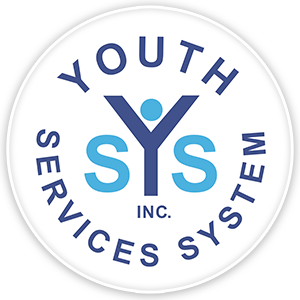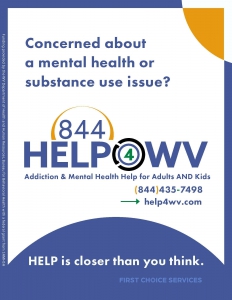Preventing Prescription Substance Misuse (PFPD)
What is Prescription Substance Misuse?
Prescription substances are used for pain relief or other medically necessary purposes. They are generally safe when taken as prescribed by a doctor, but they can be misused. People misuse prescription substances by:
- Taking the medicine in a way or dose other than prescribed
- Taking someone else's prescription medicine
- Taking the medicine for the effect it causes-to get high
Drop Off Location for Unused or Unwanted Prescriptions
(No Needles, Sharps, Aerosols, or Liquids)
Disposing of unused or unwanted medications is a great way to help prevent Prescription Substance Misuse while freeing up some much-needed storage space in the home. The locations below are available to do just that. Simply stop in to any of these sites to find a secured disposal box. These will be disposed of properly by the Drug Enforcement Agency, which means you can fill that shelf up with some healthy snacks while feeling great about bettering your community!
Weirton Police Department: Monday-Friday 8 am-4 pm
Brooke County Courthouse: Monday-Friday 8:30 am-5 pm
Follansbee Police Department: 24/7
Bethlehem Police Department: Monday-Friday 8 am-4 pm
Triadelphia Police Department: Monday-Friday 8:30 am-3:30 pm
Moundsville Police Department: 24/7
Moundsville State Police Barracks: Monday-Friday 8 am-4 pm
Wheeling Police Department: 24/7
Hundred City Building: Monday-Friday 8:00 am-3:00 pm
New Martinsville Police Department: 24/7
Talking With Your Medical Provider About Prescription Substances
You can play an active role in your health care by talking with your doctor or health care provider. Clear and honest communication between you and your physician or health care team can help you both make informed choices about your health. It’s important to be honest and upfront about your symptoms even if you feel embarrassed or shy. Have an open dialogue with your doctor or health care provider— ask questions to make sure you understand your diagnosis, treatment, and recovery.
Here are a few tips that can help you talk to your doctor or health care provider and make the most of your appointment:
- Write down a list of questions and concerns before your appointment
- Consider bringing a close friend or family member with you
- Take notes about what the doctor or health care provider say or ask a friend or family member to take notes for you
- Learn how to access your medical records so you can keep track of test results, diagnoses, treatments plans and medications to better prepare for your next appointment
- Ask for the doctor’s or health care provider’s contact information and their preferred method of communication
- Remember that nurses and pharmacists are also good sources of information
Proper Storage
Another step you can take to keep your household safe is to ensure your Prescription Substances are organized and accessible only to those who need them.
• Make sure your medications are out of sight and out of reach from children and guests. Lock boxes work well.
• Teach your children about medication safety. Never tell children medication is candy to get them to take it.
• Make sure the safety cap is locked. Twist until you hear the click or you can’t twist anymore.
• Keep track of how much medication you’ve used and keep a list of all medications in the house.
• Ask houseguests and visitors to keep purses or coats that have medication(s) in them out of sight when they’re in your home.
When You're Away From Home:
• When packing for a trip, keep your medication(s) in their original child-resistant containers.
• When staying in a hotel, secure your medication(s) in a passcode-protected hotel room safe.
Substance Use Disorder (SUD) and Prescription Substances
Misuse of prescription drugs can lead to a substance use disorder (SUD), a medical illness which ranges from mild to severe and from temporary to chronic. Addiction is the most severe form of a SUD. An SUD develops when continued misuse of the drug changes the brain and causes health problems and failure to meet responsibilities at work, school, or home.
Prescription Opioids
Opioids bind to and activate opioid receptors on cells located in many areas of the brain, spinal cord, and other organs in the body, especially those involved in feelings of pain and pleasure. When opioids attach to these receptors, they block pain signals sent from the brain to the body and release large amounts of dopamine throughout the body. This release can strongly reinforce the act of taking the drug, making the user want to repeat the experience. People addicted to an opioid medication who stop using the drug can have severe withdrawal symptoms that begin as early as a few hours after the drug was last taken. These symptoms include:
- Muscle and bone pain
- Sleep problems
- Diarrhea and vomiting
- Cold flashes with goose bumps
- Uncontrollable leg movements
- Severe cravings
Prescription Central Nervous System Depressants (CNS)
Most CNS depressants act on the brain by increasing activity of gamma-aminobutyric acid (GABA), a chemical that inhibits brain activity. This action causes the drowsy and calming effects that make the medicine effective for anxiety and sleep disorders. People who start taking CNS depressants usually feel sleepy and uncoordinated for the first few days until the body adjusts to these side effects. If a person takes CNS depressants long term, he or she might need larger doses to achieve therapeutic effects. Continued use can also lead to dependence and withdrawal when use is abruptly reduced or stopped. Suddenly stopping can also lead to harmful consequences like seizures. The prescribing physician should always be consulted prior to making any adjustments to CNS.
Prescription Stimulants
Prescription stimulants increase the activity of the brain chemicals dopamine and norepinephrine. Dopamine is involved in the reinforcement of rewarding behaviors. Norepinephrine affects blood vessels, blood pressure and heart rate, blood sugar, and breathing. Long-term use of stimulants, even as prescribed by a doctor, can cause a person to develop a tolerance, which means that he or she needs higher and/or more frequent doses of the drug to get the desired effects. At high doses, prescription stimulants can lead to a dangerously high body temperature, an irregular heartbeat, heart failure, and seizures.
Help For Those Experiencing Prescription Substance Misuse
A range of treatments including medicines and behavioral therapies are effective in helping people struggling with Prescription Misuse. Contact Help4WV for treatment options by visiting help4wv.com, Calling (844)435-7498, or texting (844) 435-7498 available 24/7.
Sources:
1. Prescription Stimulants DrugFacts | National Institute on Drug Abuse (NIDA) (nih.gov)
2. Prescription CNS Depressants DrugFacts | National Institute on Drug Abuse (NIDA) (nih.gov)
3. Prescription Opioids DrugFacts | National Institute on Drug Abuse (NIDA) (nih.gov)
4. National Institute of Health
5. SAMSHA

.png)
